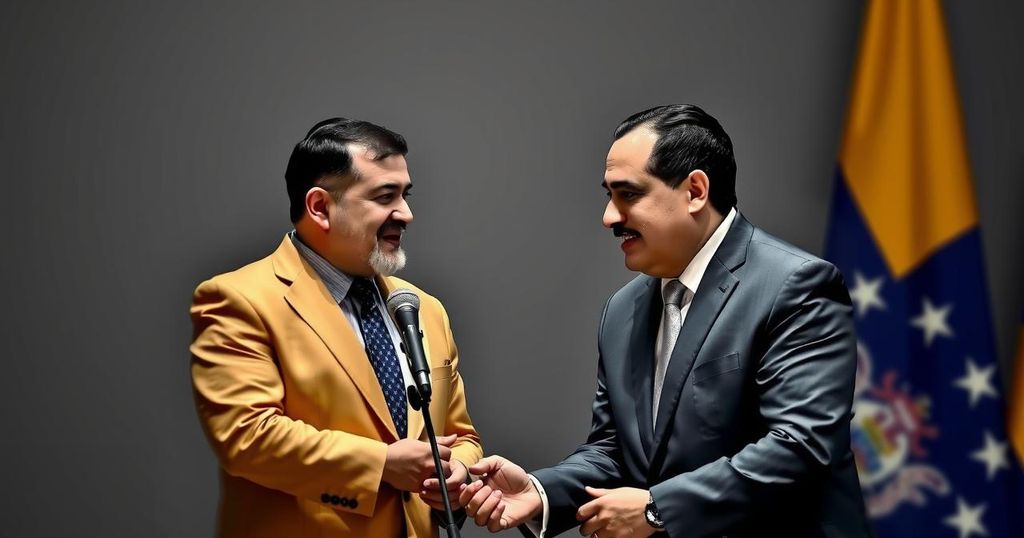Venezuelan opposition leader Maria Corina Machado urged Colombia’s President Gustavo Petro to recognize her faction’s electoral victory amid ongoing claims of electoral fraud by the Maduro government. In her appeal, she emphasized the need for international support for a government transition in Venezuela. Machado cited evidence of vote manipulation but stated that opposition candidate Edmundo González actually won by a significant margin. The situation poses implications for peace efforts in Colombia, as Maduro’s continuous rule is linked to increased criminal activities.
In a virtual address before the Colombian Senate, Venezuelan opposition leader Maria Corina Machado implored President Gustavo Petro to officially recognize her faction’s electoral triumph in Venezuela’s disputed July presidential election. Speaking from an undisclosed location, Machado emphasized to the Colombian government the urgency of acknowledging the election results, stating, “Silence is no longer an option in the face of what is happening in Venezuela.” Her comments aimed at consolidating international support against the regime of Nicolás Maduro, insisting on the necessity of a transition in governance. Despite being in hiding for security reasons, due to fears of arrest, she shared that evidence from over 80% of electronic voting machines indicated that opposition candidate Edmundo González had achieved a significant victory over Maduro. Machado called upon Colombian senators to be advocates for this victory and to voice the plight of Venezuelans facing severe governmental repression, including grave human rights violations. The political landscape in Venezuela continues to be tumultuous, with Maduro’s administration recently consolidating power after the election results were declared amid accusations of governmental repression and electoral impropriety. Additionally, Machado warned of the potential ramifications of another term for Maduro, linking his regime to an increase in criminal activities in Colombia that impede peace efforts in the region. This plea underscores the broader implications for Colombian governance and peace processes reliant on stability in Venezuela.
The political climate in Venezuela has been severely strained following a contested presidential election in July, where President Nicolás Maduro was declared the winner by electoral authorities aligned with his administration. The opposition, led by Maria Corina Machado, has raised significant concerns regarding the legitimacy of these results, citing a lack of transparency and allegations of electoral manipulation. With the upcoming presidential term commencing on January 10, the stakes for both Venezuela and its neighboring Colombia are particularly high, as ongoing tensions influence regional stability and security, particularly concerning crime and political peace initiatives. President Gustavo Petro of Colombia has faced challenges in navigating these complexities, especially given his administration’s goals to negotiate peace with rebel factions that operate within the border area.
Maria Corina Machado’s appeal to President Gustavo Petro to recognize her faction’s electoral victory reflects the ongoing struggle for democracy in Venezuela amid accusations of repression and electoral fraud. The lack of transparency in the electoral process and the resultant humanitarian concerns highlight the significant challenges facing both Venezuelans and neighboring Colombia. As Venezuela approaches a critical juncture in its governance, the actions of neighboring states, particularly Colombia, will be pivotal in shaping the future of peace and stability in the region.
Original Source: apnews.com






